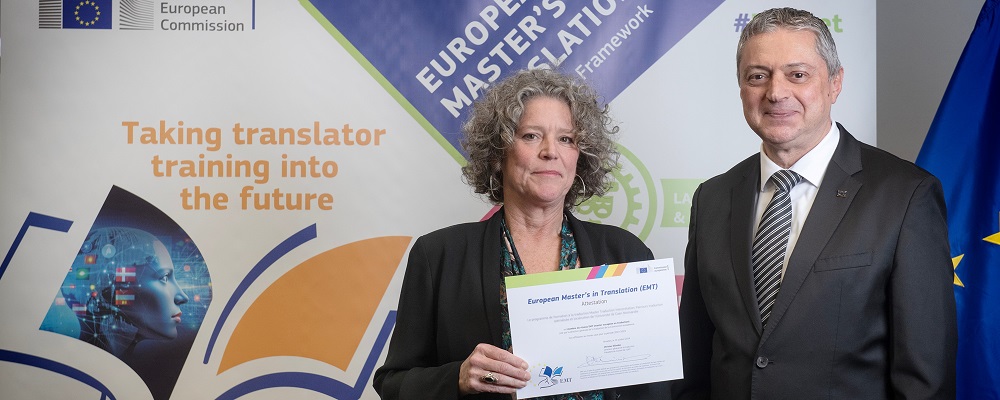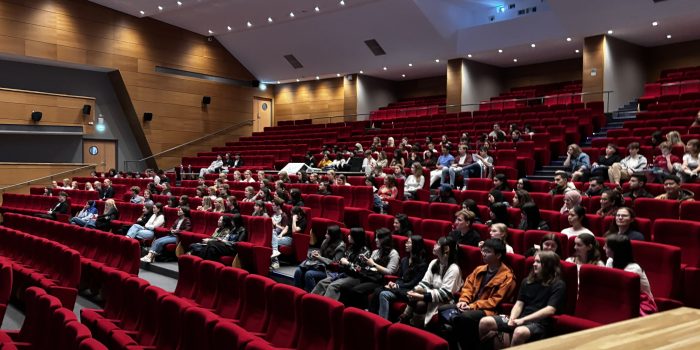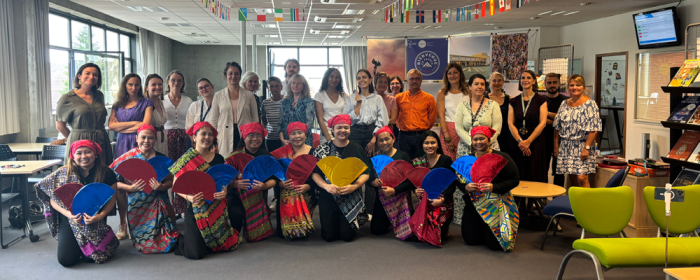In June 2024, the master’s degree in Translation at the University of Caen Normandie was awarded the European Master’s in Translation (EMT) label. This distinction recognises a professionally-oriented programme that meets the standards and demands of the translation market.
A prestigious programme
The European Master’s in Translation (EMT) is a label awarded for 5 years (2024-2029) by the Directorate-General for Translation – the authority managing the translation and interpreting activities of the EU institutions within the European Commission. For the University of Caen Normandie, this recognition is a valuable partnership opportunity with the European Commission. The master’s programme will benefit from a network to promote translation studies through meetings and projects with other universities and European institutions, as well as professional integration through internships with partner organisations.
“In 2024, the master’s in Translation at the University of Caen Normandy is the only new French programme to have joined this network, which already includes 81 European university programmes from 22 countries, explains Ineke Wallaert, Senior Lecturer in Translation and head of the programme. The master’s is now at the same level with other prestigious translation programmes, including Paris-based institutions such as the ISIT (Institute of Intercultural Management and Communication) and the ESIT (School of interpretation and translation).“
To join the European Master’s in Translation label, a programme must meet a number of criteria: the provided skills, the quality of student supervision and support, internship opportunities, availability and diversity of careers. These standards have always been part of the DNA of the master’s in Translation at the University of Caen Normandie!
Key assets of the master’s in Translation
Originally, the master’s in Translation of the University of Caen Normandie was led by Thierry Ruchot (lecturer in Russian) and Ineke Wallaert (lecturer in translation) within the Faculty of Foreign Languages. In 2017, the programme was created as part of the master’s in Foreign and Regional Languages, Literature, and Civilisations (LLCER). Then, in 2021, it became a Master’s in Translation and Interpretation.
“This Master’s degree is a professional-oriented programme, supervised at 90% by professionals in translation and technical writing,” explains Ineke Wallaert.
In their first year, students can choose from various language combinations – three working languages: French and English are compulsory, along a third language (German, Spanish, Italian, or Russian).
After that, students improve their translation skills in their chosen working languages: economic, technical, legal translation… As well as technological skills, including mastering computer-assisted translation (CAT) tools (with market leaders like Wordfast and SDL Trados), but also using automatic translation and artificial intelligence.
Moreover, to accompany students on their way to becoming professionals, the master’s programme has maintained a partnership with the Cinéréel documentary festival since its creation. Thaks to this collaboration, first-year students can carry out subtitling projects. The master’s also organises exchanges with professionals from every field of translation, as well as research days focusing on translation research and translation studies.
“The programme opens up a wide range of career opportunities, emphasises Ineke Wallaert. Post-editing, document tracking system, localisation, subtitling… The master’s in Translation of the University of Caen Normandie trains future translators in accordance with academic requirements and market trends.“






